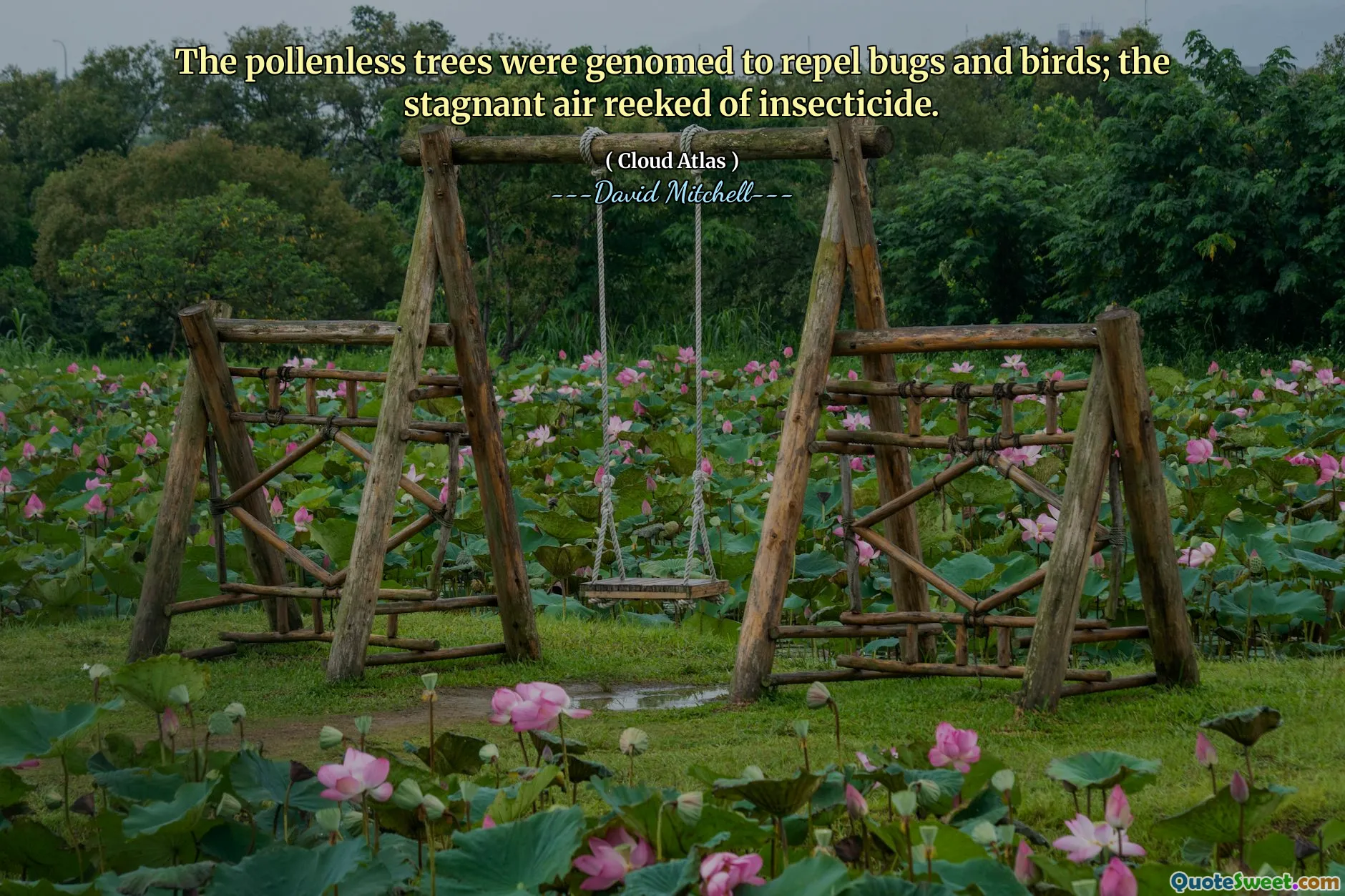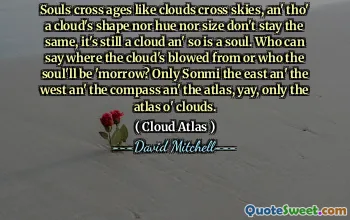
The pollenless trees were genomed to repel bugs and birds; the stagnant air reeked of insecticide.
In "Cloud Atlas" by David Mitchell, the environment is depicted in a way that highlights the consequences of human intervention in nature. The mention of pollenless trees suggests an effort to engineer plants that are designed not to attract pests or birds, indicating a desire for control over the ecosystem. However, this artificiality comes at the cost of disrupting natural processes, reflecting a broader theme of humanity’s impact on the environment. The description of stagnant air filled with insecticide emphasizes the toxic consequences of such interventions. It illustrates a landscape where the natural balance is disturbed, and the use of chemicals leads to a suffocating atmosphere. This scenario serves as a critique of modern agricultural practices and the quest for a bug-free environment, hinting at the potential harm that arises from prioritizing convenience over ecological health.
In "Cloud Atlas" by David Mitchell, the environment is depicted in a way that highlights the consequences of human intervention in nature. The mention of pollenless trees suggests an effort to engineer plants that are designed not to attract pests or birds, indicating a desire for control over the ecosystem. However, this artificiality comes at the cost of disrupting natural processes, reflecting a broader theme of humanity’s impact on the environment.
The description of stagnant air filled with insecticide emphasizes the toxic consequences of such interventions. It illustrates a landscape where the natural balance is disturbed, and the use of chemicals leads to a suffocating atmosphere. This scenario serves as a critique of modern agricultural practices and the quest for a bug-free environment, hinting at the potential harm that arises from prioritizing convenience over ecological health.











